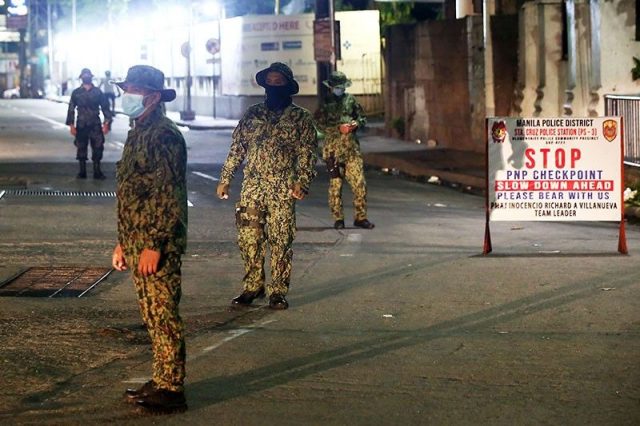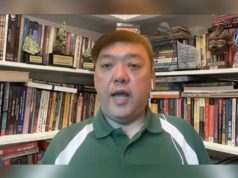
The Commission of Human Rights stressed the need for law enforcers on the ground to follow clear-cut guidelines on quarantine measures after President Rodrigo Duterte issued remarks on a “martial law-like” enforcement of rules.
CHR spokesperson Jacqueline Ann de Guia reminded the public that the best way to achieve the proper enforcement of rules while the government plans to slow down the spread of COVID-19 is “through a humanitarian approach that ensures peace while protecting public health.”
“For a thorough implementation, we reiterate the need for clear-cut guidelines for law enforcers on the ground that will provide scenarios, do’s and don’ts, and commensurate penalties,” she said in a statement released Thursday.
De Guia said that Duterte’s remarks to implement a “martial law-like” style of enforcement during the enhanced community quarantine in his April 16 speech might only be a verbal warning. However, she said that it is intended “to direct strict enforcement to law enforcers.”
Posted by PTV on Wednesday, April 22, 2020
The chief executive earlier warned Filipinos that he would order the police and the military to enforce the rules “just like in martial law” if the public continues to break protocols amid reports of increased presence of people on the streets.
However, presidential spokesperson Harry Roque in an April 20 briefing said that Duterte has no plans of declaring martial law and said it was just an exercise of his “calling out powers.”
Roque added that it is one of the president’s extraordinary powers based on the 1987 Philippine Constitution.
The Article VII (Executive Department) Section 18 of the Constitution states that martial law can only be implemented “to prevent or suppress lawless violence, invasion or rebellion.”
Cabinet Secretary Karlo Nograles, also the Inter-agency Task Force on COVID-19 spokesperson, on Friday said that the martial law is unlikely without invasion or rebellion.
Duterte himself said that the community quarantine directive is not martial law when he announced its implementation over National Capital Region last March 12.
“Hindi ito martial law. It is not a martial law. It’s not even something extraordinary. But what is sought — what is sought to be solved here is the again, walang iba except to fight the virus and to exact compliance. Mas mabuti talaga ‘yang maniwala kayo,” he said.
The CHR acknowledged that while proper enforcement of rules and the public’s cooperation is important in flattening the curve of the COVID-19 cases, the government must make it a point to approach the situation in a “humanitarian” way.
“As a public health measure, the quarantine rules are still bound by legal standards. Any warrantless arrest should be within legal ambit, which strictly provides the specific circumstances when it is merited,” De Guia said.
“In a state of public emergency, it might be convenient to resort to sweeping measures that provide shortcuts. However, protecting public health entails due diligence and nuancing such that all factors are considered and no human dignity is trampled upon,” she added.
The human rights agency reiterated that law enforcers must follow the proper guidelines to prevent instances of “abuse of authority.”
Such guidelines, de Guia said, would also “guarantee respect for rights, and prevent undue panic.”
The CHR’s statement came after reports of authority abuse in enforcing quarantine protocols surfaced, including the shooting of former soldier Private First Class Winston Ragos by the Quezon City police.
Ragos, who fought in Marawi, was diagnosed with a post-traumatic stress disorder and Schizophrenia.
The Human Rights Watch has already reported instances of abuse experienced by Filipinos, including minors, during the enhanced community quarantine period.
It urged the Philippine government “to prioritize the right to health and respect everyone’s human rights” as it fights the pandemic.









